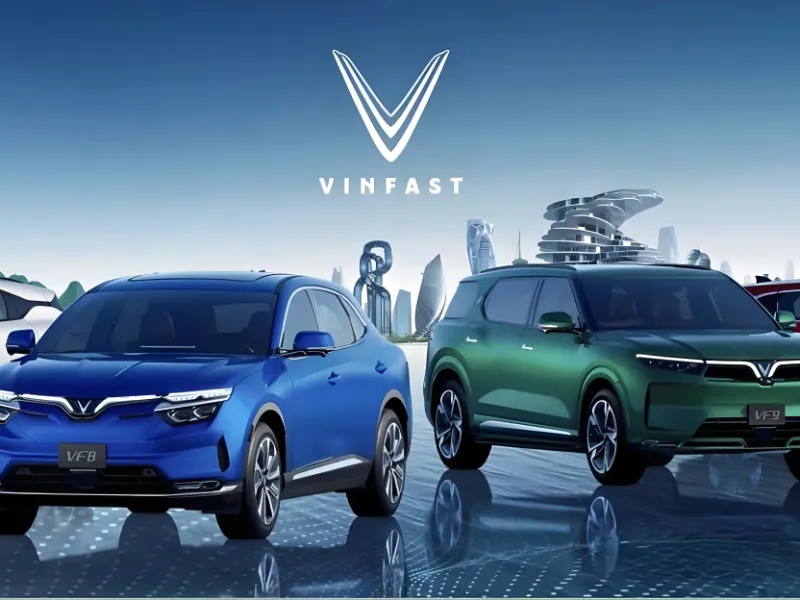- Vietnamese electric vehicle (EV) maker VinFast has announced a delay in the launch of its planned $4 billion factory in North Carolina, pushing the opening date from 2025 to 2028.
- VinFast’s decision to delay the North Carolina factory and revise its delivery targets highlights the broader challenges faced by the global EV market.
OUR TAKE
VinFast’s electric vehicle factory in North Carolina has been delayed again, pushed back from 2025 to 2028. That’s quite a significant change. Looking back, Tesla’s factory construction journey was also filled with obstacles, but they eventually emerged as the industry leader. VinFast’s adjustments are likely due to the ever-changing landscape of the global electric vehicle market, even forcing Vietnam’s richest man, Pham Nhat Vuong, to proceed cautiously. However, their sales still increased by 24% in the second quarter, indicating that the market still has good judgment. But compared to their annual target, this is still a drop in the ocean. It seems that in the electric vehicle industry, passion alone is not enough; wisdom and patience to navigate through storms are also crucial.
–Miurio huang, BTW reporter
What happened
Vietnamese electric vehicle (EV) maker VinFast has announced a delay in the launch of its planned $4 billion factory in North Carolina, pushing the opening date from 2025 to 2028. Additionally, the company has revised its delivery forecast for this year, cutting the target by 20,000 units amid uncertainties in the global EV market. Founded in 2017 by Pham Nhat Vuong, Vietnam’s richest man, VinFast shifted to producing fully electric vehicles in 2022. The company now plans to deliver 80,000 vehicles this year, down from the initially planned 100,000.
Despite the adjustments, VinFast reported a 24% increase in sales for the second quarter, reaching approximately 12,000 vehicles, and a total of 21,747 units sold in the first half of 2024. This represents a 92% increase compared to the same period last year, though it only accounts for about one-fourth of the revised yearly forecast. VinFast cited ongoing economic headwinds and uncertainties in various macro-economies and the global EV landscape as reasons for the more conservative outlook.
The delay in the North Carolina factory comes as part of a broader strategy to optimise capital allocation and manage short-term spending more effectively. VinFast initially announced in 2022 that it would build the EV and battery factory in the United States, with an annual production capacity of 150,000 vehicles, to take advantage of the Biden administration’s subsidies for American-made EVs. However, the company has faced challenges, including high borrowing costs and a shift in consumer preference towards cheaper gasoline-electric hybrids.
Also read: Stellantis is ready to compete in Europe’s EV market
Also read: Renault CEO calls for flexible EV adoption timeline
Why it’s important
VinFast’s decision to delay the North Carolina factory and revise its delivery targets highlights the broader challenges faced by the global EV market. The shift in timeline for the factory underscores the financial prudence required in the current economic climate, where high borrowing costs and fluctuating consumer demand are impacting automakers’ strategic plans. By delaying the factory launch, VinFast aims to better allocate its capital and support near-term growth targets while strengthening its existing operations.
The revised delivery forecast and sales data reflect both the potential and the volatility of the EV market. While VinFast achieved significant sales growth in the first half of 2024, the lowered delivery target indicates cautious optimism. The company’s ability to adapt to market conditions and adjust its strategy demonstrates a flexible approach to navigating economic uncertainties.
The delay also has implications for the US EV market. VinFast’s North Carolina factory was expected to contribute to the growing domestic production of electric vehicles, aligning with the Biden administration’s goals of boosting EV manufacturing and adoption in the US. The postponement may affect the supply chain and the overall availability of VinFast EVs in the American market, potentially influencing competition and market dynamics.
Despite these challenges, VinFast remains committed to its growth strategy. The company expects strong sales growth in the second half of the year, driven by a diverse product range and expansion into new markets in Asia and existing markets. This optimism is grounded in the belief that the adjustments made will allow VinFast to manage resources more effectively and maintain a focus on long-term objectives.
VinFast’s financial performance also highlights the volatility in the EV sector. The company logged a net loss of $618 million in the first quarter, despite nearly tripling its revenue from the previous year. This financial strain underscores the high stakes and significant investments required in the EV industry. As VinFast prepares to announce its second-quarter results on August 15, stakeholders will be closely watching for signs of progress and stability.
VinFast’s recent decisions and performance reflect the dynamic and challenging nature of the global EV market. The company’s strategic adjustments, while necessary, indicate the broader pressures faced by automakers in this evolving landscape. VinFast’s continued focus on growth and adaptation will be crucial as it navigates these challenges and strives to establish a strong foothold in the global EV market.

